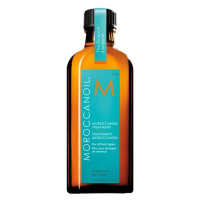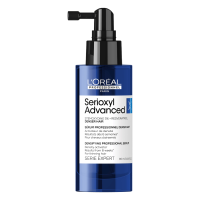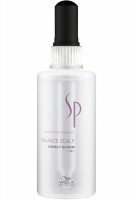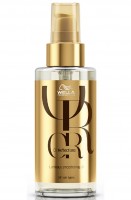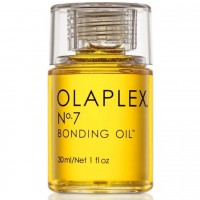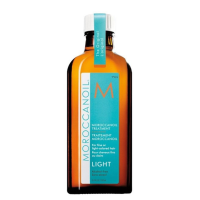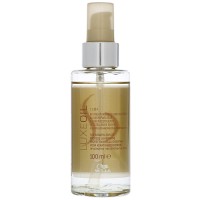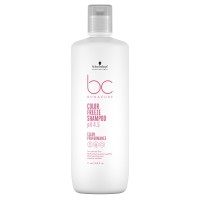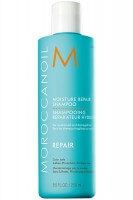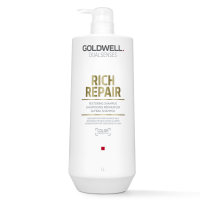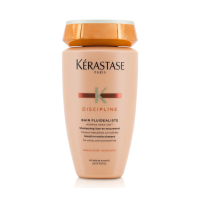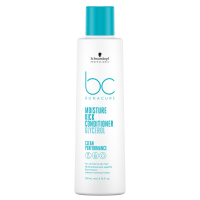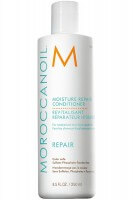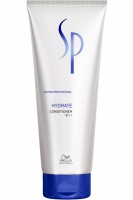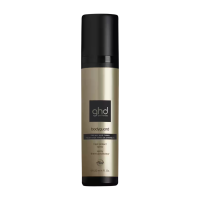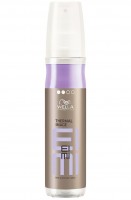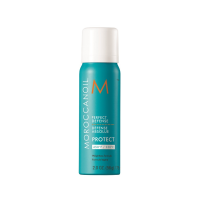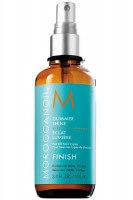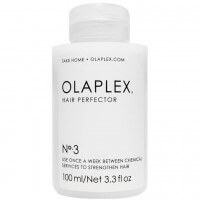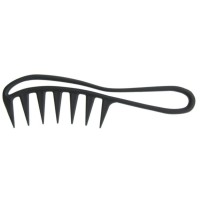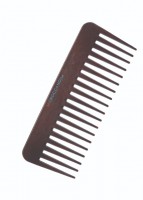The Science of Hair Growth: 7 Proven Ways to Stimulate Thicker, Healthier Hair
The Science of Hair Growth: 7 Proven Ways to Stimulate Thicker, Healthier Hair
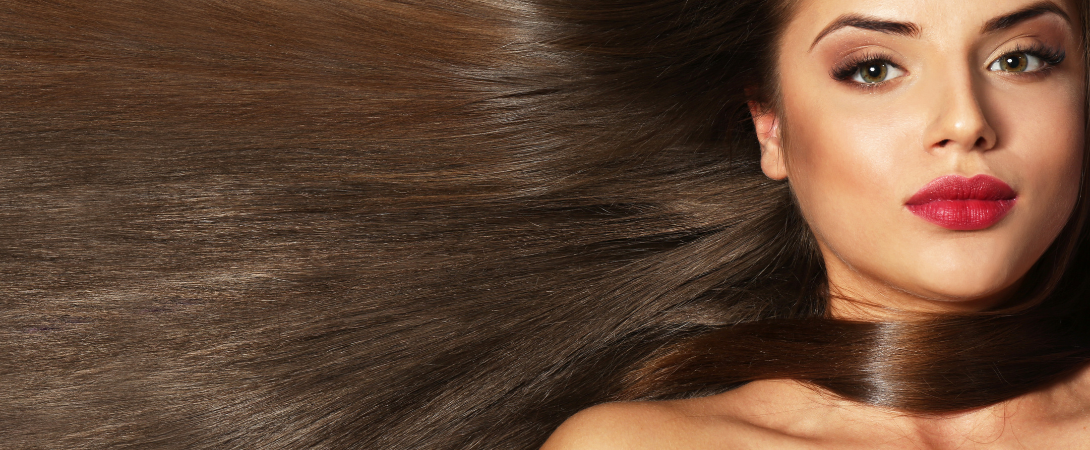
I - Discover the Secrets to Boosting Hair Growth Naturally
Achieving long, thick, and healthy hair is a common desire, but the journey can often be frustrating and challenging, particularly when hair growth appears to stagnate. The good news is that there are natural, scientifically-backed methods to stimulate and accentuate hair growth speed and help you attain the gorgeous tresses you've always wanted.
In this comprehensive guide, we will delve into the hair growth process and provide a clear understanding of the various stages your hair goes through. We'll explore the best hair growth products, dietary tips, vitamins, and natural oils to promote hair growth. Additionally, we'll discuss home remedies and scalp massage techniques that can enhance your hair's growth potential. So, get ready to unlock the secrets to healthier, thicker hair with our expert advice and tips!
II - The Science Behind Hair Growth
You may ask yourself, how fast does hair grow? On average, hair grows about 1 cm per month, which means that it can grow about 12 cm longer in a year. Hair growth is a complex process that occurs in four distinct phases: Anagen, Catagen, Telogen, and Exogen. Understanding these phases is crucial for identifying factors that can influence the health and growth rate and speed of your hair.

a. Anagen phase (active growth phase): During the Anagen phase, your hair actively grows. In this phase, hair cells divide rapidly, and the hair strands get longer. The Anagen phase typically lasts between two and six years, depending on genetic factors and other influences. On average, hair grows at a rate of about 1.25 centimeters per month (approximately 0.42 centimeters per week) or 15 centimeters per year, which is also referred to as hair growth per month.
b. Catagen phase (transition phase): After the Anagen phase, the hair enters the Catagen phase, a short transition period that lasts about two to three weeks. During this phase, the hair follicle shrinks, the hair strand becomes detached from the blood supply, and growth stops.
c. Telogen phase (resting phase): The Telogen phase is a resting phase for the hair follicle, which lasts about three months. During this phase, the hair strand remains attached to the follicle but does not grow. Eventually, new hair starts growing beneath the existing hair and pushes it out.
d. Exogen phase (shedding phase): In the Exogen phase, the old hair strand finally detaches from the follicle and falls out to make room for new hair growth. On average, it is normal to lose about 50 to 100 hairs per day during this phase, which can also be considered as hair growth per day.
Various factors such as genetics, age, diet, and overall health can influence the length and health of the hair growth phases. By understanding the science behind hair growth and applying the proper care practices, you can create optimal conditions for your hair to thrive. In the following sections, we will discuss seven proven methods for naturally stimulating your hair growth speed and supporting thicker, healthier hair.
Method 1: Boost Hair Growth with High-Quality Branded Products

Investing in high-quality hair growth products from reputable brands can significantly improve the health and growth of your hair. The following products from top brands like Wella, Schwarzkopf, Goldwell, La Riche Direction, Moroccanoil, and L'Oréal are designed to support hair growth and maintain a healthy scalp, some of which may include:
- Wella Invigo Nutri-Enrich Deep Nourishing Shampoo: This shampoo is infused with Goji Berry, known for its rich vitamins, minerals, and peptides. It helps to nourish and protect hair, creating an ideal environment for growth.
- Schwarzkopf Bonacure Scalp Genesis Root Activating Serum: This serum is designed to stimulate hair growth by boosting microcirculation and reducing hair loss. It contains Carnitine Tartrate, Taurine, and Echinacea to support healthy hair growth.
- Goldwell Kerasilk Repower Volume Shampoo: This shampoo provides the perfect balance of volume and care, with Keratin and Elastin to strengthen and support hair growth. It gently cleanses, while promoting stronger, thicker hair.
- WELLA Professionals SP Balance Scalp Energy Serum: This hair growth serum stimulates blood circulation in the scalp, promotes healthy hair growth, soothes irritation, and strengthens hair with a blend of caffeine, biotin, and vitamin E. Suitable for all hair types, it leaves hair looking healthy and strong.
- Moroccanoil Treatment: This versatile, argan oil-infused treatment helps to detangle, speed up drying time, and boost shine. It also nourishes hair and supports growth by providing essential nutrients and hydration.
- L'Oréal Serioxyl Denser Hair Serum: This daily treatment is formulated with Stemoxydine and Neohesperidin to stimulate the scalp and promote denser, thicker hair growth.
By incorporating some of these high-quality branded products into your hair care routine, you can help support hair growth, maintain a healthy scalp, and prevent breakage. Remember to combine these products with a balanced diet, stress reduction, and proper hair care practices for the best results.
Method 2: Scalp Massage and Circulation

Scalp massages can improve blood circulation, stimulate hair follicles, and strengthen hair strands, ultimately promoting hair growth. Here are two methods to effectively massage your scalp:
Essential oils from tea tree, lime, and rosemary may fight dandruff-causing yeasts and resist biofilm formation. They are becoming popular in dermatology as an alternative to traditional anti-dandruff products, but more research is needed.
Essential Oil Massage:
Essential oils like lemon, tea tree, and peppermint can boost hair growth when combined with a scalp massage. Follow these steps for an essential oil massage:
- a. Choose your preferred essential oil and warm it up slightly.
- b. Apply the oil to your scalp and massage gently for 20 minutes, using your fingertips in circular motions.
- c. Leave the oil on your scalp for an additional 30 minutes.
- d. Rinse your hair with a gentle shampoo.
Pro Tip: Start massaging at the crown of your head and work your way out toward the hairline. Apply just enough pressure to feel the soft pads of your fingertips move over your scalp, and avoid scratching your scalp with your fingernails.
Inversion Method:
The inversion method involves massaging your scalp while your head is positioned upside down, promoting increased blood flow to the hair follicles. Here's how to perform the inversion method:
- a. Sit on a chair and flip your hair over, allowing it to hang freely.
- b. Use your fingertips to massage your scalp for 5 minutes, applying gentle pressure in circular motions.
Pro Tip: Ensure your hands are clean before massaging your scalp to prevent the transfer of dirt or bacteria, which could cause infections or buildup.
In addition to scalp massages, engage in regular exercise and practice yoga asanas that promote blood flow to the scalp. Combining these practices with a healthy diet and proper hair care can significantly enhance hair growth and overall hair health.
Method 3: Hair Growth Supplements

While a balanced diet is essential for healthy hair growth, certain supplements can further enhance the process by providing specific nutrients that may be lacking in your diet. Always consult with a healthcare professional before incorporating any supplements into your routine. Some popular hair growth supplements include:
Biotin:
Biotin, also known as vitamin H or vitamin B7, is crucial for hair health, as it helps convert certain nutrients into energy. Biotin deficiency can lead to hair thinning and loss. Supplements containing biotin can promote hair growth and strength.
Omega-3 Fatty Acids:
Omega-3 fatty acids are known for their anti-inflammatory properties and their ability to improve scalp health. They can be found in fish, flaxseeds, walnuts, and supplements like fish oil. A study has shown that mackerel-derived fish oil promotes hair growth.
Vitamin C:
Vitamin C plays a significant role in iron absorption, which is essential for hair health. Iron deficiency can lead to hair loss. By incorporating vitamin C supplements, you can boost your body's ability to absorb iron and improve overall hair health.
Zinc:
Zinc is an essential mineral for hair growth, as it helps with cell regeneration and the production of proteins. Zinc deficiency has been linked to hair loss. Supplements containing zinc can support hair growth and maintain hair health.
Vitamin D:
Vitamin D is essential for hair growth and overall health. It's involved in the creation of new hair follicles and can be found in fatty fish like salmon. Supplements containing vitamin D can help maintain healthy hair growth.
Remember, it's essential to consult with a healthcare professional before starting any supplementation, as excessive intake of certain vitamins and minerals can have adverse effects.
Method 4: Topical Treatments & Homemade Remedies for Hair Growth

Topical treatments & Homemade Remedies are applied directly to the scalp and hair to promote growth and improve hair health. These treatments can be natural, like essential oils, or over-the-counter products specifically formulated to target hair growth. Some effective topical treatments and homemade remedies include:
Essential Oils:
Essential oils like rosemary, lavender, and peppermint are known for their potential hair growth-promoting properties. They can be diluted with a carrier oil (such as coconut or jojoba oil) and massaged into the scalp to stimulate blood flow and nourish hair follicles. Ensure you perform a patch test before using any essential oil to avoid allergic reactions.
Minoxidil:
Minoxidil is an FDA-approved topical treatment for hair loss in men and women. It works by increasing blood flow to hair follicles, promoting hair growth and slowing down hair loss. Minoxidil is available in various strengths, so consult with a healthcare professional to determine the appropriate dosage for your needs.
Caffeine-based treatments:
Caffeine-based products have gained popularity in recent years due to their potential to stimulate hair growth. These products work by extending the growth phase of the hair cycle, leading to thicker and stronger hair. Caffeine can be found in shampoos, serums, and other hair care products.
Onion juice:
Onion juice has been traditionally used to promote hair growth due to its high sulfur content. Sulfur is essential for keratin production, which makes up the structure of hair strands. Applying onion juice to the scalp can potentially stimulate hair growth and improve hair health.
Avocado oil:
Avocado oil is a nutrient-rich oil that contains vitamins A, B, D, and E, as well as essential fatty acids, which are beneficial for hair growth and overall hair health. Avocado oil can help moisturize and strengthen hair strands, reduce breakage, and stimulate hair growth by penetrating the hair shaft and nourishing the scalp. To use avocado oil as a topical treatment, you can either apply it directly to your scalp and hair or mix it with other oils, such as coconut or jojoba oil, for a more potent hair growth-promoting blend.
Mayonnaise Hair Mask:
A mayonnaise hair mask is a popular home remedy for deep conditioning and nourishing hair. Mayonnaise contains proteins, oils, and fatty acids that can help to strengthen hair, reduce frizz, and promote growth. To create a mayonnaise hair mask, follow these steps:
- Choose a full-fat mayonnaise, preferably made with natural ingredients.
- Measure out the desired amount of mayonnaise, depending on the length and thickness of your hair. Typically, 1/4 to 1/2 cup of mayonnaise should be enough for most hair types.
- If desired, you can add additional ingredients to enhance the hair mask's benefits. For example, you can mix in one tablespoon of honey for added moisture or one tablespoon of olive oil for extra shine.
- Apply the mayonnaise mixture to damp hair, focusing on the mid-lengths and ends. If you have a dry scalp, you can also massage some of the mayonnaise into your scalp.
- Cover your hair with a shower cap and let the mask sit for 15-30 minutes. The heat from your scalp will help the mayonnaise penetrate your hair shafts.
- Rinse the mayonnaise mask thoroughly with lukewarm water, then shampoo and condition as usual.
A mayonnaise hair mask can be used once or twice a month to improve hair health and promote growth. However, it's essential to thoroughly rinse the mayonnaise from your hair to avoid any lingering odors or residue.
Rice Water Rinse for Hair Growth:
Rice water is a simple yet effective homemade remedy for hair growth. Rich in vitamins, minerals, and amino acids, rice water is believed to strengthen hair, promote growth, and improve overall hair health. To prepare a rice water rinse, follow these steps:
- Rinse 1/2 cup of uncooked rice (white or brown) thoroughly to remove any dirt or impurities.
- Place the rinsed rice in a bowl and add 2-3 cups of water. Stir the rice and water together, then let it soak for 30 minutes to an hour.
- After soaking, strain the rice water into a clean container, discarding the rice. You can store the rice water in the refrigerator for up to a week.
- To use the rice water rinse, first shampoo and condition your hair as usual. Then, pour the rice water over your hair, making sure to cover your entire scalp and hair.
- Massage the rice water into your scalp and hair for a few minutes, then let it sit for another 10–15 minutes. Rinse your hair with lukewarm water to remove the rice water.
- You can use a rice water rinse once or twice a week to promote hair growth and improve hair health.
Remember to be consistent and patient, as results may take several weeks or months to become noticeable. Combining rice water rinses with other topical treatments, a balanced diet, and proper hair care can enhance hair growth and overall hair health.
When using topical treatments and natural hair growth remedies, it's important to be consistent and patient, as results may take several weeks or months to become noticeable. Always follow the recommended usage instructions and consult with a healthcare professional if you have concerns about a specific product or treatment.
Method 5: Stress Reduction and Hair Growth

Stress can have a significant impact on hair health, often leading to hair loss or thinning. Stress-induced hair loss, known as telogen effluvium, occurs when stress pushes hair follicles into a resting phase, resulting in increased shedding. To promote hair growth and maintain healthy hair, it's essential to manage and reduce stress in your daily life. Here are some effective ways to reduce stress and support hair health:
Practice mindfulness meditation:
Mindfulness meditation is a powerful stress-reduction technique that encourages you to focus on the present moment. Regular practice of mindfulness meditation can help lower stress levels, which may positively impact hair health.
Exercise regularly:
Regular physical activity helps reduce stress, improves blood circulation, and supports overall well-being. Engaging in activities such as walking, swimming, yoga, or any other form of exercise you enjoy can help relieve stress and benefit hair health.
Get enough sleep:
Adequate sleep is essential for stress reduction and overall health. Aim for 7-9 hours of quality sleep each night to support hair growth and minimize stress-related hair loss.
Develop healthy coping mechanisms:
When faced with stressors, it's crucial to develop healthy coping mechanisms like deep breathing exercises, journaling, or talking to a therapist. These methods can help you manage stress effectively and reduce its impact on your hair health.
Connect with others:
Building a strong support system of friends, family, and loved ones can help alleviate stress and improve emotional well-being. Make time to connect with others, share your feelings, and seek guidance when needed.
Method 6: Proper Hair Care Practice
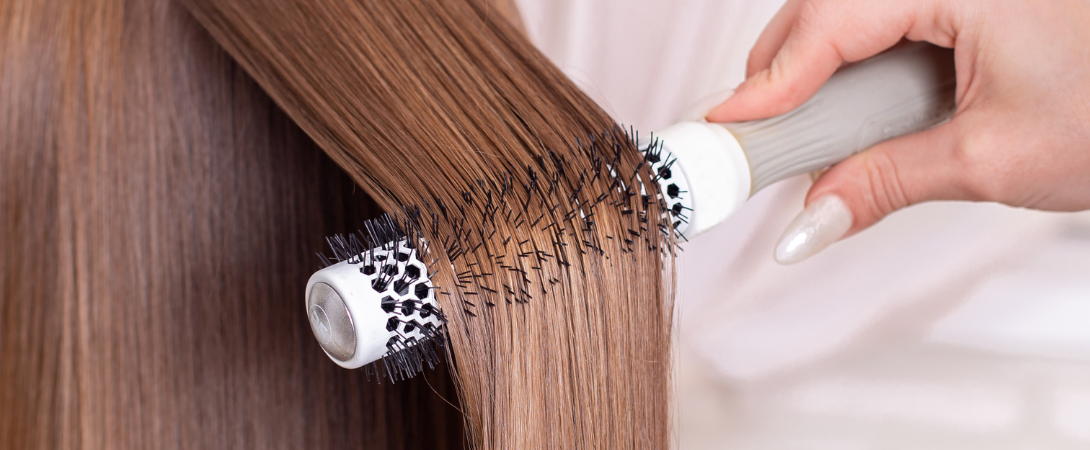
Adopting proper hair care practices can significantly improve hair health and promote growth. By treating your hair gently and using the right products, you can minimize damage and create the ideal environment for hair growth. Here are some essential hair care practices to stimulate thicker, healthier hair:
Use gentle, sulfate-free shampoo:
Sulfates can strip your hair of its natural oils, causing dryness and breakage. Opt for sulfate-free shampoos that are gentle on your hair and scalp while effectively cleansing.
Condition regularly:
Conditioning your hair after each shampoo helps restore moisture, detangle knots, and protect your hair from damage. Choose a conditioner that suits your hair type and focuses on nourishing and hydrating your hair.
Limit heat styling:
Frequent use of heat styling tools like hair dryers, flat irons, and curling wands can damage your hair, leading to breakage and slow growth. Minimize heat styling and let your hair air-dry whenever possible.
Protect your hair from the sun:
Prolonged sun exposure can damage your hair and make it more susceptible to breakage. Use a UV-protective spray or wear a hat when spending extended periods outdoors.
Trim regularly:
Regular trims help remove split ends, preventing them from traveling up the hair shaft and causing further damage. Aim to trim your hair every 6-8 weeks to maintain healthy ends and promote growth.
Avoid tight hairstyles:
Tight hairstyles like ponytails, buns, and braids can cause tension on your hair follicles, leading to breakage and hair loss. Opt for looser hairstyles and vary them to avoid putting constant pressure on specific areas of your scalp.
Use a wide-tooth comb:
When detangling your hair, use a wide-tooth comb to minimize breakage. Start from the ends and work your way up to the roots gently.
By following these proper hair care practices, you can create a healthy environment for hair growth and reduce the risk of damage. Combining these practices with a balanced diet, stress reduction, and other hair growth methods will help you achieve thicker, healthier hair.
Method 7: Herbal Remedies for Enhanced Hair Growth

Natural herbal remedies have been used for centuries to promote hair growth and improve hair health. By incorporating these remedies into your hair care routine, you can stimulate hair growth and nourish your hair in a gentle, natural way. Here are some popular herbal remedies to boost hair growth:
Aloe Vera: Aloe vera is known for its soothing and moisturizing properties, making it an excellent remedy for promoting a healthy scalp and hair growth. Apply pure aloe vera gel to your scalp and hair, massage gently, and leave it on for 30 minutes before rinsing with lukewarm water.
Fenugreek Seeds: Fenugreek seeds are rich in protein, iron, and other essential nutrients that promote hair growth. Soak fenugreek seeds overnight, grind them into a paste, and apply the paste to your scalp and hair. Leave it on for 30 minutes before rinsing with lukewarm water.
Ginseng: Ginseng is a popular traditional Chinese herb known for its ability to stimulate hair growth. Ginseng extracts can be found in various hair care products like shampoos and conditioners or can be used in the form of supplements. Consult with a healthcare professional before incorporating ginseng into your hair care routine.
Green Tea: Green tea is rich in antioxidants and polyphenols, which promote hair growth and protect hair follicles from damage. Rinse your hair with green tea after shampooing, leave it on for 10 minutes, and then rinse with cold water.
Hibiscus: Hibiscus flowers are rich in vitamins, minerals, and amino acids that nourish hair and promote growth. Create a paste by grinding hibiscus flowers and mixing them with coconut oil or olive oil. Apply the paste to your scalp and hair, leave it on for 30 minutes, and then rinse with lukewarm water.
When to Consult a Professional

While incorporating these natural methods to stimulate hair growth can be beneficial, there are instances when seeking professional help is necessary. If you are experiencing excessive hair loss, thinning, or are concerned about the overall health of your hair, it's crucial to consult a professional. Here are some situations when seeking professional advice is recommended:
Persistent hair loss:
If you notice excessive hair loss over an extended period, despite trying various hair growth methods, it's time to consult a dermatologist or trichologist. They can diagnose the underlying cause and recommend appropriate treatments.
Visible scalp issues:
Conditions such as dandruff, psoriasis, or seborrheic dermatitis can negatively impact your hair growth. If you have any visible signs of scalp irritation, redness, or flaking, consult a professional for a tailored treatment plan.
Hereditary hair loss:
If you have a family history of hair loss, especially androgenetic alopecia, it's essential to consult a specialist. They can guide you on preventive measures and potential treatments to manage hair loss effectively.
Hormonal imbalances:
Hormonal imbalances, such as those experienced during pregnancy, menopause, or due to certain medical conditions like polycystic ovary syndrome (PCOS), can contribute to hair loss. Consult a healthcare professional for advice on addressing hormonal imbalances and promoting healthy hair growth.
Medical treatments and medications:
Hair loss can be a side effect of certain medications or treatments, such as chemotherapy. In these cases, it's crucial to consult your doctor to discuss alternative medications or supportive treatments to minimize hair loss.
Unexplained hair loss or thinning:
If you are unsure of the cause of your hair loss or thinning, consult a professional for a thorough evaluation. They can help identify the underlying cause and recommend a personalized treatment plan to address your specific needs.
Seeking professional advice early on can help you address the root cause of your hair loss and identify the most effective treatments. Remember that everyone's hair is different, and a professional can provide personalized guidance to promote healthy hair growth.
A Recap of Key Insights and Practices
In conclusion, achieving thicker, healthier hair is a goal that many people share. By understanding the science behind hair growth and incorporating various methods into your daily routine, you can improve the overall health of your hair. To recap, here are the key takeaways from this article:
- Familiarize yourself with the hair growth cycle and the factors that can influence it.
- Maintain a balanced diet rich in essential nutrients for optimal hair health.
- Stimulate circulation and promote hair growth through regular scalp massages.
- Consider hair growth supplements, but consult a healthcare professional before starting any new supplement.
- Explore topical treatments like essential oils and hair masks for targeted hair growth support.
- Manage stress levels and incorporate relaxation techniques to support healthy hair growth.
- Practice proper hair care habits to prevent damage and maintain the health of your existing hair.
- Seek professional advice when experiencing persistent or unexplained hair loss, or when dealing with specific scalp or hormonal issues.
By integrating these methods into your routine, you can actively contribute to the health of your hair and potentially stimulate growth. Remember, patience and consistency are vital, as hair growth takes time. Don't be afraid to experiment with these methods and find what works best for you. With dedication and persistence, you'll be on your way to achieving the thicker, healthier hair you desire.



